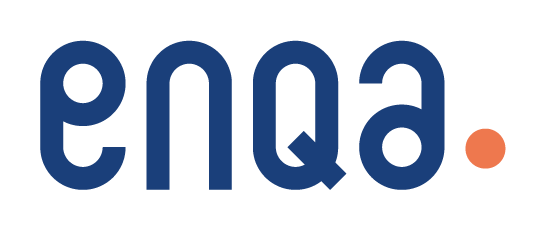The continuous expansion of international cooperation in the field of accreditation and quality assurance is one of the central tasks assigned to the Accreditation Council by the states. In this context, it is important to promote mutual understanding of quality assurance systems, to develop comparable criteria, methods and standards of quality assurance and to improve the transparency of study programmes in order to promote the mutual recognition of qualifications and thus student mobility.
International Networks
The Accreditation Council is a long-standing active member of the leading European and international quality assurance networks such as the European Association for Quality Assurance in Higher Education (ENQA) and the International Network for Quality Assurance Agencies in Higher Education (INQAAHE). It is also listed in the European Quality Assurance Register for Higher Education (EQAR). Here you can find more information about the ESG evaluation by ENQA and the listing in EQAR.
It regularly participates in international working groups, meetings and conferences and is represented in the European Quality Assurance Forum and the European Audit Network. Through the involvement of its members and speakers in commissions, expert groups or quality assurance agencies abroad, the Accreditation Council can contribute its expertise internationally and at the same time learn from the experience of its foreign partners.
|

|

|
Accreditation on the basis of European standards
Quality assurance is one of the key instruments for the realisation of the European Higher Education Area. Comparable criteria, methods and standards are the basis for the recognition of degrees and thus for the promotion of transnational mobility. Here, the Standards and Guidelines for Quality Assurance in the European Higher Education (ESG) have set standards. The ESG were adopted by the ministers responsible for higher education at the Bologna follow-up conference in Bergen in May 2005 and comprehensively updated in the course of the follow-up conference in Yerevan 2015. They form the reference framework for internal and external quality assurance and for quality assurance agencies in the European Higher Education Area and are also the basis for the criteria and procedural rules for the accreditation of study programmes and internal quality management systems by the Accreditation Council.
Accreditation of joint programmes
For joint programmes, the specimen decree and the decrees of the Länder allow the application of the European Approach for Quality Assurance of Joint Programmes (European Approach). The European Approach was signed by the Science Ministers of the European Higher Education Area in May 2015; see here. It provides for the possibility of recognising the assessments of quality assurance agencies for joint programmes, provided that
- these are listed in the European agency register EQAR,
- the assessment is carried out in accordance with the accreditation criteria set out in the European Approach and based on the Standards and Guidelines for Quality Assurance in the European Higher Education Area (ESG), and
- the Agency applies the special rules of procedure laid down in the European Approach.
International agreements
The Accreditation Council has established international agreements with quality assurance institutions in Japan, the USA and Chile. It thus fulfils its legal mandate to promote "international cooperation in the field of accreditation and quality assurance" (Art. 5 para. 3 no. 3 Interstate Study Accreditation Treaty).
- Agreement with the Japanese quality assurance institution NIAD-UE National Institution for Academic Degrees and University Education
- Agreement with the US quality assurance institution CHEA International Quality Group (CIQG),
- Agreement with the Chilean quality assurance institution Comisión Nacional de Acreditación (CNA-Chile).
Equivalency assessment
The Accreditation Council has concluded a contract (available in German only) with the German Jordanian University (GJU), according to which the Accreditation Council will assess if the study programmes of the GJU fulfil the formal and academic criteria laid down in the specimen decree. The seal of the Accreditation Council is not awarded in this procedure.
International projects
GAC was a partner in the two-year Twinning project “Strengthening capacities for quality assurance and governance of qualifications in Georgia”. It ran until June 2021 and was dedicated to the following three components:
- Strengthening quality assurance of education and training in a LifeLongLearning perspective,
- Contributing to the implementation of the new national qualifications framework,
- Contributing to improved model of governance, monitoring and dissemination of the Georgian quality assurance agency National Center for Educational Quality Enhancement (NCEQE)'s outputs.
The project partners were Germany (DAAD, BMBF and Accreditation Council) and Estonia (the Estonian accreditation agency EKKA). During the project period, various expert missions took place for each individual component. One expert from Germany and one from Estonia were usually nominated for each mission. In addition, two study visits (to Germany and Estonia) were organised for the staff of the Georgian accreditation agency.
The Accreditation Council was a partner in the project QACHE - Quality Assurance of Cross-border Higher Education, which focused on the quality of transnational study programmes (transnational education). The project was co-financed by the Erasmus+ programme of the European Union. The aim was to create a common European quality assurance approach for cross-border higher education. The toolkit developed by the partners is available here. The project ran until March 2016.
As a further project result, the country report prepared by the Accreditation Council's office is available here, which contains an inventory of the offers of German higher education institutions abroad and their quality assurance.